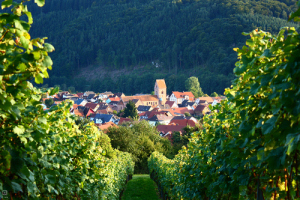The many kinds of homecomings
 I have the opportunity to spend time in Germany just as my novel, The Munich Girl, comes full-circle.
I have the opportunity to spend time in Germany just as my novel, The Munich Girl, comes full-circle.
In the weeks I spent reading the book’s galleys, the scenes drew me back to settings I will carry with me always, whether as part of my inner geography, or because they are actual locations in which the story takes place. Many of these, from cobblestone passageways to Alpine vistas, tiny villages to market squares filled with symphonies of church bells, are ones in which I did the actual writing.
Much like the book’s protagonist, Anna, I repeatedly experience the many kinds of homecomings, spiritual and material, that life brings to us. Much like her, I often find myself in a kind of unbelieving daze as I sit in the same café I’ve known since childhood. Two years, ago, and maybe also five, I sat here capturing down pieces of a story that has always felt more like finding my way toward a puzzle’s finished image than it has any strategic plotting.
If the remedy for feeling out-of-sync in life is to reside in the moment, then we are all here today as I type this: my child self, sitting alongside my parents; that story-struck one who aspired to go the distance with wherever the writing process led (and wondering, at times, whether I truly would); and my self today, blessed to reach a point of completion. 
A highlight for me this month was my return to the first place in Germany where my family lived when I was that child, a village on the Main River called Dorfprozelten. On a cloudy Saturday afternoon, as my life reached six decades, I was able to stand facing the river and offer my prayerful thanks at the grave of Herr and Frau Geis, who shared their house with my family back in 1960.
At the age I am now, seasons pass the way a month used to, but in those lovely days, my ten months in that village still seem like a little lifetime. I know that’s partly because since my military family lived “on the economy” in this way, we established much closer ties with actual Germans themselves, something that has played an important part in my life ever since.
 The story of The Munich Girl is about many things, including, of course, Eva Braun and history from the time of the war in Germany. It is also about the power of friendship, and the importance of our often ignored and overlooked inner life, without which our world careens increasingly out-of-balance.
The story of The Munich Girl is about many things, including, of course, Eva Braun and history from the time of the war in Germany. It is also about the power of friendship, and the importance of our often ignored and overlooked inner life, without which our world careens increasingly out-of-balance.
The novel is also a story about outlasting that chaos and confusion by valuing, and believing in, the ultimate triumph of all of the good that we are willing to contribute to building, together. When my family arrived at the Geis family’s home, there had been some very dark times, the kind that can make it easy to lose hope. Yet within months, we would embark on what we’d remember as some of our happiest years. 
As one character in my novel observes: “Sometimes, we must outlast even what seems worse than we have imagined, because we believe in the things that are good. So that there can be good things again.”
Find more about The Munich Girl: A Novel of the Legacies That Outlast War at;
http://www.amazon.com/Munich-Girl-Novel-Legacies-Outlast/dp/0996546987/ref=sr_1_1?ie=UTF8&qid=1447514554&sr=8-1&keywords=The+Munich+Girl
To be on the mailing list for news about the book and author events, please email info@phyllisring.com.





